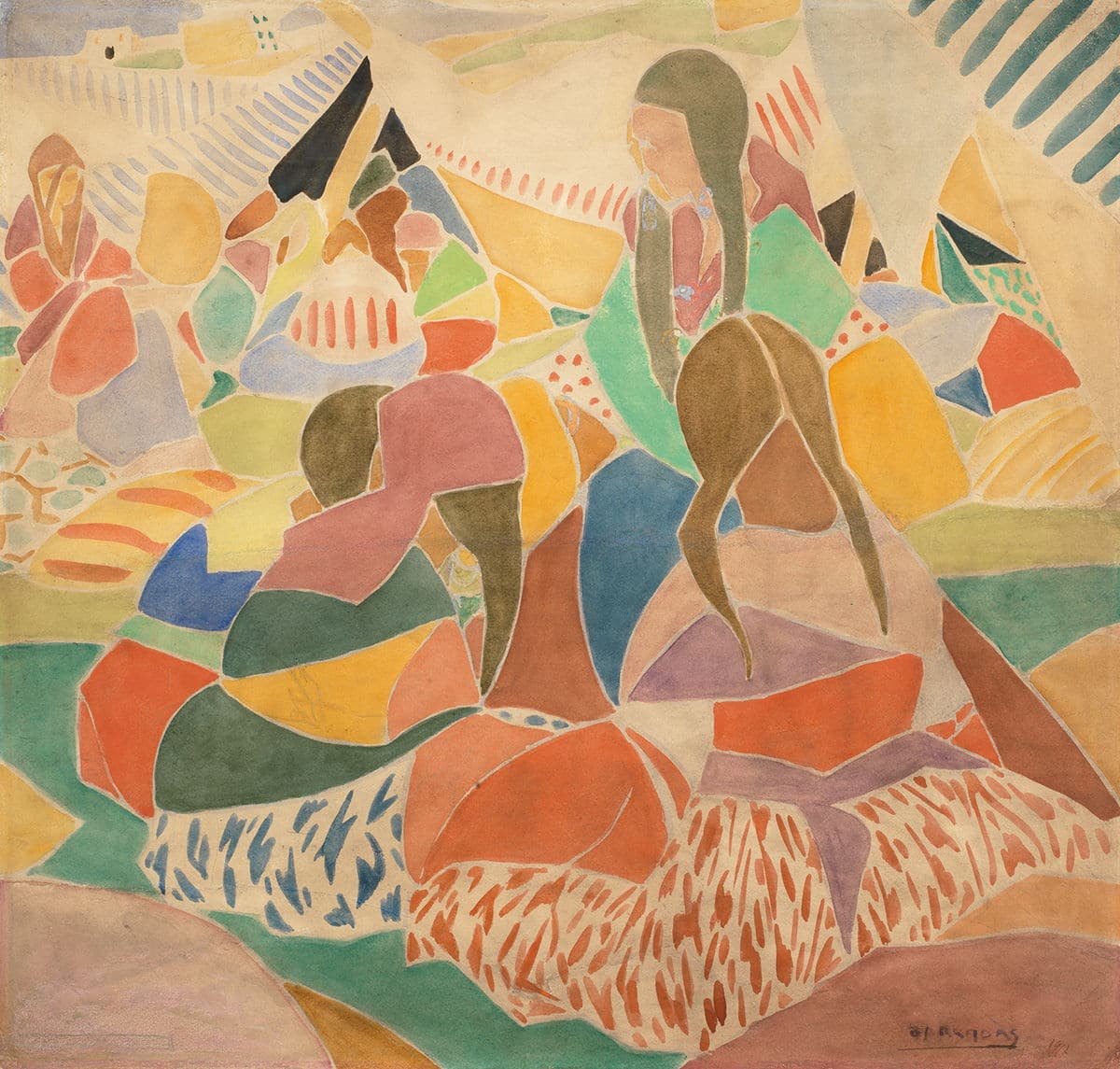COLLECTION CATALOG
This gouacheon cardboard from 1917 is the preparatory study for an oil painting made the following year that belongs to the collection of the Museo Nacional de Artes Visuales in Montevideo. In this work, Rafael Barradas began by drawing a series of dynamic elements that generate a sense of movement, following the principles of Vibrationism: a personal mix of Cubist and Futurist influences that he developed during his first years in Spain, where he resided between 1914 and 1928.
A group of women occupy the composition’s the foreground. Three women sit with their backs to the viewer and a fourth woman stands up facing forward. To the left, the viewer can make out a second group. At the top left-hand corner, the first houses of a nearby town are visible. The composition is a mosaic of triangles and geometric figures (the Zíngaras [Gypsies]), and vertical, horizontal, and transversal lines (the fields).
Barradas achieved a vibrant composition that is full of light and emanates a sense of serenity and rest through the juxtaposition of fragmentations, the decomposition of the women’s skirts, scarves, shawls, blouses into colored blots, the fabrics laid out on the ground, and the broken landscape. The work is an ode to liberty, nomadic life, and the humble existence of traveling gypsies, with whom the artist identifies.





